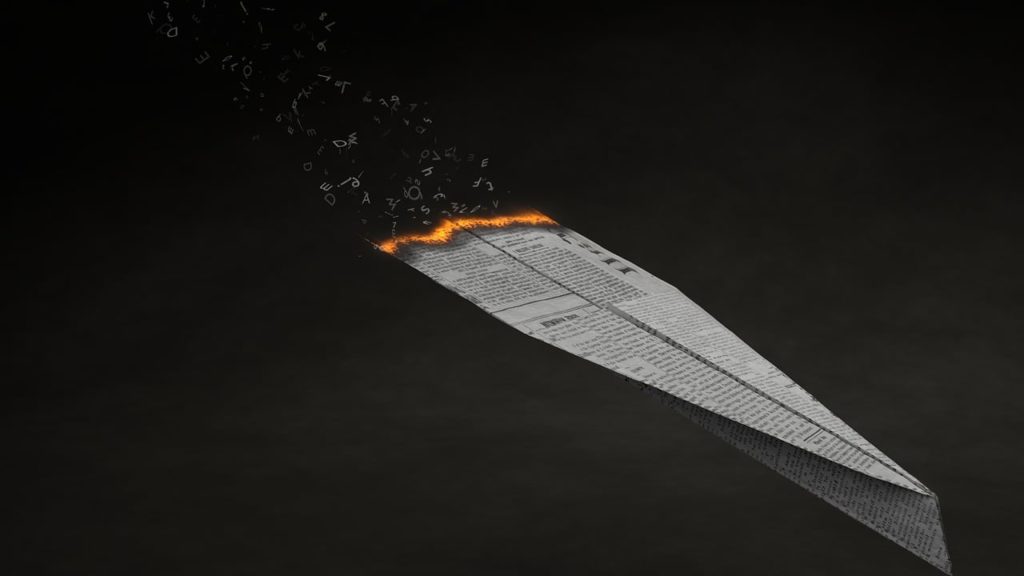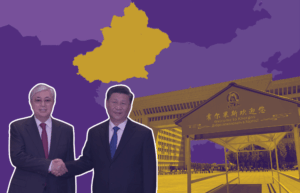Almost every year, countries in Central Asia are placed at the bottom of NGO Reporters Without Borders’, annual ranking for the freedom of press. Every country has dropped in ranking, compared to the previous year.
The position of media coverage in Central Asia has never been renowned for its freedom. However, it seems that this year marks a turning point.
In the NGO Reporters Without Borders’, new report as published on the 3rd May 2023, it is noted that if ‘the Russian invasion in Ukraine and the deployment of the Kremlin’s propaganda […] has darkened the whole region [of Eastern Europe]’, Central Asian countries have also seen a sharp decline in their freedom of press since last year.
In a ranking of 180 countries, the nations that are in theory the most liberal in the region, such as Kyrgyzstan, Uzbekistan, and Kazakhstan, are regressing. Kyrgyzstan is undergoing the most substantial evolution by dropping fifty rankings from 72nd place to 122nd place. Meanwhile, Kazakhstan fell twelve lines and is now positioned 134th. Uzbekistan fell by four points (now at 137th) due to the rise of attacks against the media.
The Remarkable Fall of Kyrgyzstan
The deterioration of the freedom of press in Kyrgyzstan is evidenced by multiple attacks against journalists since 2022, as well as the promulgation of the law against false information in summer 2021. Under the scope of this law, the Kyrgyz government is intensifying the campaign against Kyrgyz service of the Radio Free Europe, known locally as Azattyk, in demanding the withdrawal of its licence on the 27th April. At the end of October 2022, the Ministry of Culture blocked Azattyk as it refused to remove a video addressing the confrontations between Kyrgyzstan and Tajikistan, at their border.
Amnesty International asserts that this decision was a ‘blow to media freedom’, whilst the Committee to Protect Journalists has called it ‘a deeply chilling message.’ Reporters Without Borders speaks of ‘increasingly severe censorship’ in Kyrgyzstan.
Read more on Novastan: Closure of Radio Azattyk sparks discontent from civil society and international human rights activists
Last January, the independent media service Kloop found itself in a similar situation. The Ministry of Culture had threatened to block Kloop’s website if the editors refuse to withdraw an article on the inflating of construction costs by a state agency.
Last November, the journalist Bolot Temirov was extradited to Russia following a politically motivated trial, after he had denounced cases of corruption on his YouTube channel, Temirov Live.
Kazakhstan and Online Censorship
In Kazakhstan, media censorship is issued more discretely by blocking websites that might unsettle power. A report by the Open Observatory of Network Interference (OONI) indicates that authorities are obstructing access to the Azattyq website, the Kazakh service of Radio Free Europe.
Read more on Novastan: “An escalating manifestation of Russophobia” – Kazakhstan at the epicentre of an information war
From the snap presidential election of November last year till this January the access to the websites of Radio Azattyq and Current Time, another branch of Radio Free Europe, was blocked.
Kazakhstan has also promulgated a law ‘on the mass media’, a pretext to regulate, or even censor, the information that is available on the internet and particularly the information spreading in social media.
Pressure on Journalists in Uzbekistan
As in the previous year, Reporters Without Borders notes that in Uzbekistan, ‘the situation for the media has only slightly improved since the death of President Islam Karimov in 2016, and criticism of the government remains difficult.’ Nevertheless, Uzbekistan has gained twenty-four points in 2022.
Notably, the report indicates that the Uzbek authorities have ‘extensive’ control of the media and that many bloggers have close ties to the government. The country enforces ‘repressive’ laws on the media and ‘widespread surveillance, censorship and auto-censorship’, reports Gazeta.uz.
Read more on Novastan: Pressure from Russia increases on Central Asian media outlets
‘The large and medium media platforms, as well as bloggers with an audience of over 5,000 people, are subjected to intense pressures and censorship,’ as reported to Novastan by an Uzbek blogger with a small audience. ‘However, there are exceptions, with some channels having less than 1,000 to 2,000 subscribers who are also now facing pressure’, he continues.
Another Uzbek journalist with a critical stance on the government tells Novastan about the recent pressure imposed by the authorities upon journalists and bloggers, ahead of the constitutional referendum of the 30th April 2023. ‘I know of at least three examples where managers of Telegram channels and journalists have been summoned to the State Security Service for a conversation’, he testifies.
Tajikistan and Turkmenistan, Always Bottom of the Ranking
Tajikistan and Turkmenistan, whose political regimes are the most repressive, remain at the bottom of the ranking. Compared to last year, Tajikistan drops one position on the list, now ranking 153rd place. According to the NGO, the country has transitioned from a ‘difficult’ to a ‘very difficult’ position with regard to its freedom of press. The report notes that more and more journalists are choosing to exile.
Over the past year, repression has intensified against all forms of opposition, particularly in the Gorno-Badakhshan region and against the Pamiris ethnic minority. Certain activists for the community, who have been exiled, have been extradited to their countries of origin and sentenced to long-term prison sentences.
Read more on Novastan: Human rights in Tajikistan: Interview with the UN Special Rapporteur
Turkmenistan ranks 176th place and remains among the five worst-ranked countries. Reporters Without Borders notes that censorship in Turkmenistan increased after Gurbanguly Berdimuhamedow’s son, Serdar Berdimuhamedow, rose to power in March 2022.
For more news and analysis from Central Asia, follow us on Twitter, Facebook, Telegram, Linkedin or Instagram.
 In Central Asia, the Freedom of Press is in Decline
In Central Asia, the Freedom of Press is in Decline 



